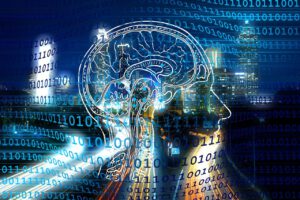
New Research Sheds Light on Energy and Environmental Impacts of Digital Technologies Like Artificial Intelligence, Blockchain, and Sharing Platforms
Q2 2020 hedge fund letters, conferences and more
Digital Technologies Are Benefitting Our Economy
(Washington, D.C.): Digital technologies have steadily weaved itself into the global economy, transforming the pace at which we access and process information. According to the Bureau of Economic Analysis, the digital economy accounted for 9% of the U.S. gross domestic product in 2018. Now the fourth largest sector in the United States, digital services are rapidly expanding our energy and environmental footprint while promising broad societal benefits. For example, can sharing platforms help reduce food waste? Does ride-hailing generate more greenhouse gas emissions? How much direct energy is needed to run blockchain applications? And what benefits can artificial intelligence bring to more traditional industries?
A series of research papers on the topic have been released, contributing important insights to an emerging body of knowledge on three key technologies:
Artificial Intelligence (AI)
- Authors developed a framework to aid in quantifying and assessing the environmental impacts of AI in the chemical manufacturing industry, hoping to address the dearth of studies on the topic.
Blockchain
- Despite generating excitement, the adoption of blockchain technology to create and manage sustainable supply chains has been slow; this paper examined barriers to adopting blockchain for such uses.
- In a separate paper, recommendations have been made on how best to quantify the amount of direct energy required to run blockchain systems, noting that it would be a mistake to assume all blockchain systems will be as energy-intensive as cryptocurrencies.
Sharing Platforms
- This paper sets out feasible paths for quantifying the GHG emissions impact of ride-hailing, a service that warrants consideration as a transportation mode and emissions source distinct from automobiles generally.
- Another paper found that electrifying ridehailing vehicles would deliver 3X to 4X faster payback, environmental benefits, and greater life cycle cost savings compared to private vehicles.
- Truly peer-to-peer ridesourcing services are feasible, and may have stronger incentives to reduce emissions from deadheading (i.e. completing a trip without passengers).
- Researchers who had focused on the impacts and benefits of ride-hailing platforms discussed their results during an online webinar on Ride-Hailing & the Future of Sustainable Transportation.
- Another paper reviewed the success of a peer-to-peer food-sharing app and suggests that the sharing economy may offer powerful means for improving resource efficiency and reducing food waste.
ELI Visiting Scholar David Rejeski helped launch the project four years ago and noted that, “governments are spending only a fraction of the funding necessary to unravel the environmental impacts of our digital lives. Our society needs to develop an empirical grounding for assessing both the positive and negative impacts of information technologies, especially as they become more ubiquitous and invisible.”
Sloan Foundation program director Evan Michelson said, “digital technologies like blockchain and artificial intelligence have enormous potential to help decarbonize the energy system and address climate change, but only if we deploy them correctly. The key question is: How do we best develop 21st century technologies in ways that help move us toward a low-carbon future? There remain many unanswered questions that need more attention from scholars and funders, but these studies are an important step in improving our understanding of these issues.”
This work is at the core of ELI’s Innovation Lab, a venture focused on supporting high impact research that can drive improved environmental governance and performance. The Innovation Lab explores breakthroughs in science, technology and policy that promises to reshape the future of sustainability; investigates feasible governance mechanisms; and works to build interdisciplinary communities of practice. In addition to exploring the relationship between the digital economy and the environment, the Innovation Lab is advancing an understanding of a future governance role of these technologies, with a particular focus on the role of algorithmic decisionmaking.
To answer these critical questions, the Environmental Law Institute, in partnership with the Center for Law, Energy & the Environment at UC Berkeley and the Yale School of the Environment, formed the Project on the Energy and Environmental Implications of the Digital Economy. Supported by the Alfred P. Sloan Foundation, this Project provided early stage funding to seven interdisciplinary research teams.
The post How Green Is the Digital Economy? appeared first on ValueWalk.
